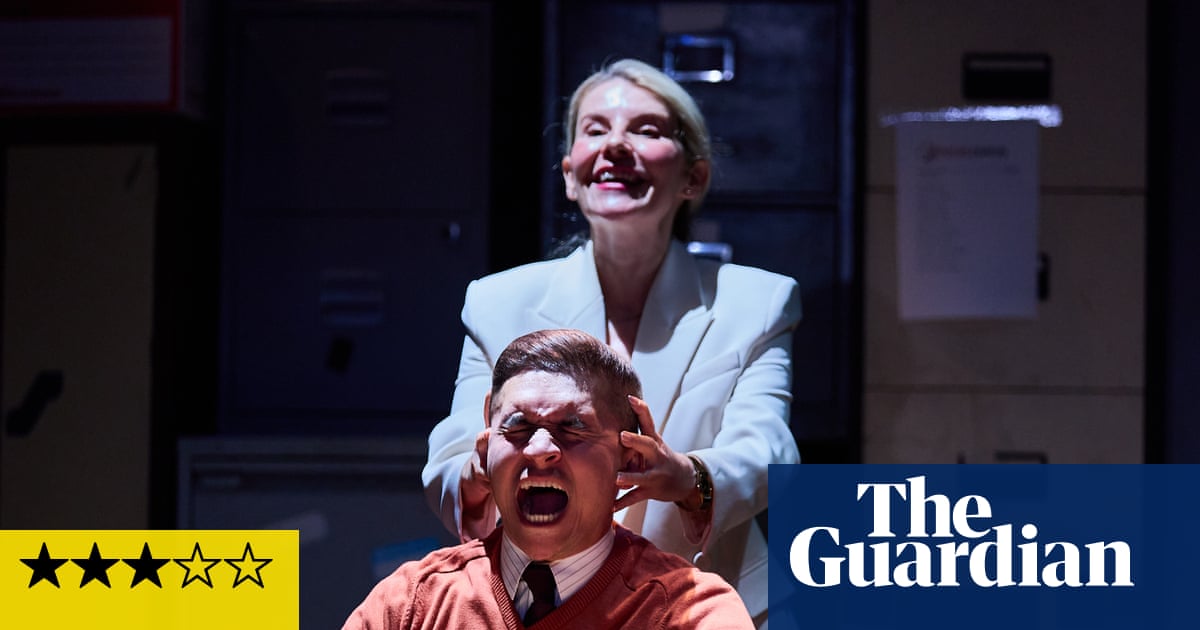The most dangerous moment of this play comes in an opening address by a power-dressed woman. She asks the audience to look across the traverse stage and lock eyes with a stranger. We do as she asks, smiling. “Would you fuck them?” she says, and scouts our averted gazes for an answer, pressing us for a response. Is she joking? Catching us out? Bullying us?
What seems like a cuddly warm-up exercise gathers uncomfortable psychological undercurrents. “You understand I’m not asking you anything you haven’t thought about before?”
That opening exudes Mamet-esque vibes, as does the setting for the drama itself – the basement of a debt collection agency which might turn into a latter-day Glengarry Glen Ross as two best mates competitively josh and confide to other about their ambitions, insecurities, love lives.
But it takes an unexpected swing: this firm is owned by Nicole (Allison McKenzie), the ball-breaking businesswoman of the beginning, who has employed her son, Darwin (Ashley Margolis), who comes to work in sliders and shorts, while Richie (Nathan Clarke) bursts with plans to make it big in Silicon Valley one fine day. It becomes clear that he is also living with obsessive-compulsive disorder, having to fulfil urgent rituals and juggling dark fantasies with positive imaginings, all enacted on stage. Nicole doubles up as his inner voice, variously wheedling, seductive and scary.
Will Lord’s arresting play does not pull away from high-wire theatricality: the inner voice swaggers on to cajole Richie or lies prone on a filing cabinet, on Janet Bird’s stage, waiting to sabotage him. Characters pop out of wardrobes while murderous fantasy and quotidian reality is seamlessly entwined.
But its intention to do two things at once leaves it weaker and sometimes opaque. Alongside its portrayal of OCD are ruminations on and critiques of the personal development and self-help industries, so it seems. Much of the latter aspect comes through Richie’s inner voice, which conflates his capitalist ambition with self-realisation and manifestation.
McKenzie, as this voice, sounds variously like a hippie, an ambassador for neurolinguistic programming (“Could you speak your happiness into future existence?”), and a Thatcher-era thug. Richie’s OCD and these broader elements become confused. while the plot does not quite go far enough.
Yet it remains powerful is its concept with excellent performances, especially from McKenzie. It is what a play should be in the theatre’s new writing space: exciting and daring, if not quite complete.
